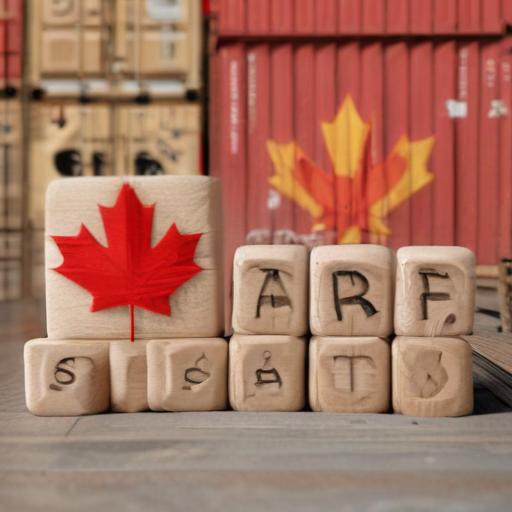U.S. President Donald Trump recently expressed doubts about reaching a new trade deal with Canada, suggesting that he might impose additional tariffs unilaterally if negotiations do not progress by the self-imposed deadline of August 1. This warning follows comments from Canadian Prime Minister Mark Carney, indicating that an agreement may not be forthcoming as both sides grapple with ongoing trade tensions.
As President Trump departed the White House for a trip to his golf courses in Scotland, he remarked, “We haven’t really had a lot of luck with Canada. I think Canada could be one where there’s just a tariff, not really a negotiation.” Current data indicates that U.S. consumers are already feeling the impact from rising tariff costs, as companies begin passing these expenses onto customers.
Adding to the complexities, a major forestry association in British Columbia reported an increase in U.S. anti-dumping duties on Canadian softwood lumber, raising the rate from 7.66% to 20.56% for most producers. This move has been condemned by the BC Lumber Trade Council, which described the tariffs as unjustified and damaging.
With negotiations ongoing, Canadians are engaged through key representatives. Carney has dispatched Marc-André Blanchard, his new chief of staff, to Washington for discussions with U.S. officials. Experts suggest that Trump’s harsh rhetoric may be a strategy to gain further concessions from Canada, aligning with his administration’s tendency to negotiate publicly.
Goldy Hyder, president of the Business Council of Canada, expressed skepticism about reaching a deal by the end of next month. Notably, Trump’s current stance is rooted in a perception of economic stability in the U.S., as evident from stable inflation and employment figures despite ongoing tariffs.
There is a consensus among Canadian officials that the terms being discussed may be too burdensome to accept. They argue that these demands could severely impact the competitiveness of several Canadian industries. Amid these negotiations, there is also a call for Canada to collaborate with Mexico to expedite a renewal of the U.S.-Mexico-Canada Agreement (USMCA) ahead of its scheduled review in 2026 to facilitate better negotiation outcomes.
As discussions continue, Canadian officials are clear that they will not settle for a subpar deal just to meet the deadline. The Canadian government remains committed to securing an agreement that prioritizes the interests of its citizens.
This climate underscores the significance of careful negotiation and mutual understanding in international trade relations, as both sides strive for a resolution that preserves economic interests and promotes cooperation.
